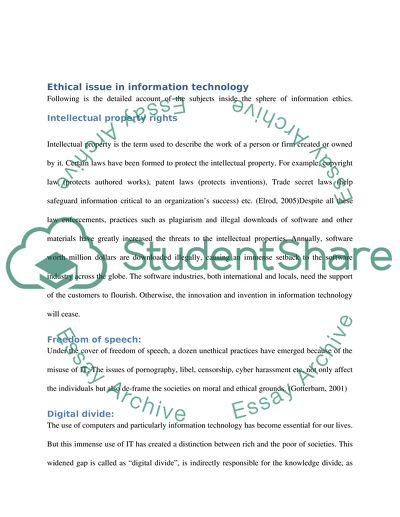Cite this document
(Ethical Issue in Information Technology Term Paper, n.d.)
Ethical Issue in Information Technology Term Paper. Retrieved from https://studentshare.org/information-technology/1738825-information-technology-ethics
Ethical Issue in Information Technology Term Paper. Retrieved from https://studentshare.org/information-technology/1738825-information-technology-ethics
(Ethical Issue in Information Technology Term Paper)
Ethical Issue in Information Technology Term Paper. https://studentshare.org/information-technology/1738825-information-technology-ethics.
Ethical Issue in Information Technology Term Paper. https://studentshare.org/information-technology/1738825-information-technology-ethics.
“Ethical Issue in Information Technology Term Paper”, n.d. https://studentshare.org/information-technology/1738825-information-technology-ethics.


